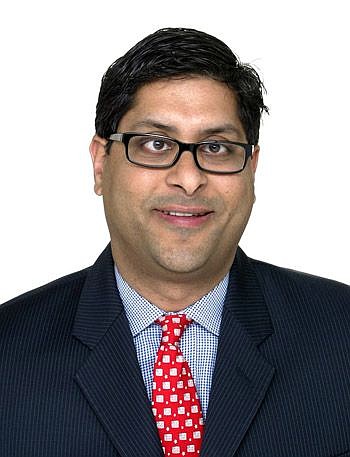
Northeast Florida was ahead of the field more than a century ago when Henry Flagler started building his railroad from Jacksonville to South Florida.
However, now that Florida East Coast Industries is working to provide an express passenger rail service on the right-of-way that Flagler first laid out, Jacksonville is behind the curve, said Husein Cumber, FEC’s executive vice president for corporate development.
“Where Northeast Florida is in the discussion is where Southeast Florida was in the 1980s and Central Florida was in the ‘90s,” Cumber said Tuesday at an Economic Roundtable of Jacksonville luncheon at Jacksonville University.
“We have some catching up to do,” he said.
FEC has started a business called All Aboard Florida that will provide passenger service from Miami to Orlando, using the Florida East Coast Railway’s tracks from Miami to Cocoa Beach, and then connecting from there to Orlando.
The Florida East Coast Railway actually runs for 351 miles from Jacksonville to Miami, but there are no current plans to extend the service to Jacksonville.
“We have said from day one we want this to be a statewide system,” Cumber said, but more work has to be done to get Jacksonville ready.
The main problem is connectivity once passengers get to Jacksonville, he said. All Aboard Florida promises passengers an “intermodal hub” that can get them to their final destination from train stations in Miami, Fort Lauderdale, West Palm Beach and Orlando.
Jacksonville doesn’t currently have the infrastructure in place to easily connect passengers from a train station in downtown Jacksonville to other points in Northeast Florida, Cumber said.
“We really need to figure out the connectivity side,” he said.
However, while Jacksonville may be behind in passenger rail service, the area has big advantages for transporting freight, said Fredrik Eliasson, executive vice president and chief financial officer at CSX Corp.
“There is a reason we’re called a logistics hub,” said Eliasson, who also serves as chair of the JAXUSA Partnership.
He said the location of Jacksonville’s port, which is actually much farther west than other East Coast ports, gives Jacksonville a competitive edge because freight transport by water is cheaper. That should appeal to businesses that are looking to transport freight inland through a Florida port.
“Jacksonville’s the only port in Florida where it makes economic sense,” Eliasson said.
However, he believes Jacksonville will have to invest in the port, including the proposed dredging project to deepen the harbor channel to 47 feet.
“We really, until the last five or six years, haven’t focused on our port, but we’re really going to have to make some investments,” Eliasson said.
“If we’re going to be competitive, we’re going to have to invest in our port infrastructure,” he said. “You can’t survive long term on 41 feet.”
Eliasson said investing in the port will be a long-term project.
“This is a 10-, 20-, 40-year journey,” he said.
Although the luncheon focused on transportation issues, Eliasson was asked about the recent speculation about mergers involving CSX and other major railroads. Canadian Pacific Railway Ltd. did admit that it had discussions with CSX but that CSX wasn’t interested in a merger.
Eliasson said five of the six major railroads in the U.S. and Canada seem to agree that regulatory issues, and a lack of “compelling” synergies that could reduce costs, make mergers less appealing.
“One railroad sees the world differently,” he said.
“Our view is we have a pretty strong future as an independent company,” he said.
(904) 356-2466